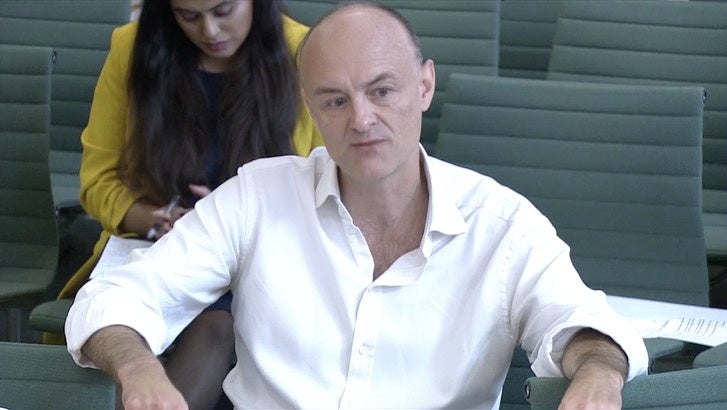Your support helps us to tell the story
From reproductive rights to climate change to Big Tech, The Independent is on the ground when the story is developing. Whether it's investigating the financials of Elon Musk's pro-Trump PAC or producing our latest documentary, 'The A Word', which shines a light on the American women fighting for reproductive rights, we know how important it is to parse out the facts from the messaging.
At such a critical moment in US history, we need reporters on the ground. Your donation allows us to keep sending journalists to speak to both sides of the story.
The Independent is trusted by Americans across the entire political spectrum. And unlike many other quality news outlets, we choose not to lock Americans out of our reporting and analysis with paywalls. We believe quality journalism should be available to everyone, paid for by those who can afford it.
Your support makes all the difference.It is not right to say that tens of thousands of people died unnecessarily from Covid-19 as Dominic Cummings claimed, a cabinet minister has said.
But leading epidemiologist Neil Ferguson said it was “unarguable” that locking down a week earlier in March last year would have saved 20-30,000 lives.
Housing secretary Robert Jenrick said the government "didn't have all the facts" when decisions were being taken and that the prime minister was acting "with the information and advice" available.
"I think it is [wrong]," Mr Jenrick told BBC radio of the claim by former No10 chief of staff Cummings.
"You have to remember that we didn't have all of the facts at the time that the decisions were being taken.
"Nobody could doubt for one moment that the prime minister was doing anything other than acting with the best of motives with the information and the advice that was available to him."
However, Prof Ferguson, who was serving on the prime minister’s Scientific Advisory Group on Emergencies at the time the first lockdown was implememnted on 23 March 2020, told the Today programme that locking down a week earlier would have saved “20,000 to 30,000 lives”.
“I think that’s unarguable,” he said. “The epidemic was doubling every three to four days in weeks 13 to 23 of March, and so, had we moved the interventions back a week, we would have curtailed that and saved many lives.”
Prof Ferguson said he “wasn’t privy to what officials were thinking within government”, but added: “I would say from the scientific side there was increasing concern in the week leading up to 13 March about the lack of ... a resolved plan of what would happen in the next few days in terms of implementing social distancing.”
The UK has suffered one of the worst death rates from coronavirus in the world, with over 150,000 dead.
Some experts say two decisions by the prime minister to delay lockdowns during the first and second waves led to exponential growth of the disease and mass casualties.
It comes after Mr Cummings claimed that Boris Johnson said he would rather "bodies pile high" than order another lockdown, giving the virus more time to take root and kill tens of thousands.
The government has refused to be drawn on most of the specific allegations made by Mr Cummings at a barnstorming evidence session before MPs yesterday.
Asked why Boris Johnson did not follow the scientific advice he was given to lock down the country in September, Mr Jenrick said: "Well, the Prime Minister looked at all of the evidence in the round."
Speaking to BBC Radio 4's Today programme, he added: "He looked at the health evidence, he looked at the impact on the economy. Remember, locking down a country for a prolonged period of time is a hugely difficult decision to take, with a great deal of consequences for our public services, for people's lives and livelihoods. It's not an easy decision to take.
"It is ultimately the Prime Minister and ministers who make decisions, but it is on the basis of advice.
"The Prime Minister analysed and reviewed the advice that was available; we're very open about the advice, all the Sage minutes are published and in the public domain."
Boris Johnson is expected to speak to broadcasters later to respond to some of Mr Cummings’ allegations.

Join our commenting forum
Join thought-provoking conversations, follow other Independent readers and see their replies
Comments